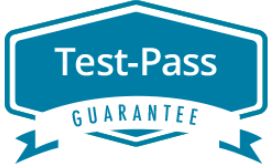How the NCLEX-RN is Scored
If you’re a nursing student approaching your last year in nursing school, you’re probably nervous about taking the infamous NCLEX-RN exam. While many studies have heard that the NCLEX is a pass/fail exam, did you know there's much more to it than that? In this post, we'll look at how the NCLEX is scored and what that means for you.
What is the NCLEX-RN exam?
The NCLEX-RN exam is a test of minimum competency and is based on the knowledge and behaviors that are needed for the entry-level practice of nursing. This exam tests not only your knowledge but also your ability to make competent nursing judgments. It is administered by the National Council of State Boards of Nursing (NCSBN) and utilizes what is known as computerized adaptive testing (CAT). This means that your questions are adapted to your performance throughout the NCLEX exam. Once you pass the exam, you are designated the title of a registered nurse, or RN, indicating that you have proven to your state board of nursing or regulatory body that you can deliver safe and effective nursing care.
How the NCLEX is Scored
NCLEX Scoring Source: Hygger.io
The NCLEX is scored with dichotomous scoring, where the test taker either passes or fails the exam. To pass the NCLEX exam, a student must correctly answer questions at least 50% of the time. It is important to note that the NCLEX is not a test of intelligence. As such, it is not designed for nurses with years of experience, does not involve high-tech clinical nursing or equipment, and is not predictive of your eventual success in a career in nursing.
What to Expect when Taking the NCLEX-RN Exam
While there is no time limit for individual questions during the exam, a student has a maximum of six hours to complete the NCLEX exam. You have an optional 10-minute break after the first two hours of the exam and an additional break after another hour and a half. Each student answers a minimum of 75 questions up to a maximum of 265 questions. While it is possible to pass the exam within the first 6 hours of testing, students should expect to sit for the entirety of the exam and be prepared to answer the maximum of 265 questions. Keep in mind, as long as you are asked questions by the computer, you still have an opportunity to pass the exam!
What is the NGN Exam?
Beginning in spring 2023, NCSBN will include scored case study/medical record-based scenarios and items on the Next Generation NCLEX (NGN) exam. The goal of these real-life scenarios is to assist nurses with the transition to clinical practice and strengthen their clinical judgment.
How to Pass the NCLEX Exam
To pass the NCLEX exam, students need to make sure they do several things:
Students need to set a realistic timeline for studying.
For most students, a minimum of 150 study hours are required to pass the exam. Therefore, if a student is planning on studying for 1 month, they need to study for a minimum of 5 hours a day to ensure they pass the first try.
Complete a minimum of three practice tests to assess strengths and weaknesses on the exam
Practice tests are vital in helping students identify where they should dedicate the most time to studying.
Clarify concepts that continue to prove difficult throughout your studies
Studying for the NCLEX with a group of friends can be a helpful strategy in holding yourself accountable and clarifying concepts that give you trouble. Another really good resource for ensuring you pass the NCLEX exam is hiring a tutor that specializes in NCLEX prep.
Practice NCLEX Questions
Think you’re ready to take on the infamous NCLEX exam, try out these 3 practice questions to see how you do in different sections. If you want access to practice tests, an NCLEX question bank, and receive help from an NCLEX expert, be sure to contact one of our tutors today!
MANAGEMENT OF CARE CATEGORY
An older adult client reports aches and pain felt over several body areas. Which initial response by the nurse is best?
“I will talk to your healthcare provider and see if I can obtain a prescription for an analgesic”
“Can you tell me the exact location of your aches and pain and how severe they are?”
“I will be back with some teaching materials to educate you about performing activities without pain and discomfort”
“Experiencing joint pain is an expected part of the aging process.”
Answer: 2
PHYSIOLOGICAL INTEGRITY CATEGORY
The nurse is caring for a client admitted with chronic obstructive pulmonary disease (COPD) exacerbation. Which finding would require immediate attention from the nurse? (Select all that apply.)
Decreased expiratory peak flow meter readings.
Evidence of finger clubbing.
Increased anterior-posterior chest diameter
Change in sputum color and amount
Presence of fever and tachycardia.
Answer: 1, 4, 5
HEALTH PROMOTION AND MAINTENANCE CATEGORY
The nurse encourages clients in a community population to attend a diabetes screening event scheduled at a local community center. Which level of intervention is the nurse advocating?
Primary prevention.
Secondary prevention.
Tertiary prevention.
Health risk assessment.
Answer: 2



